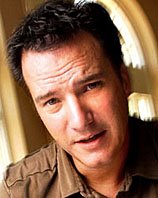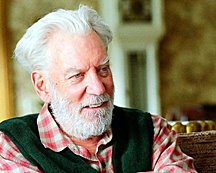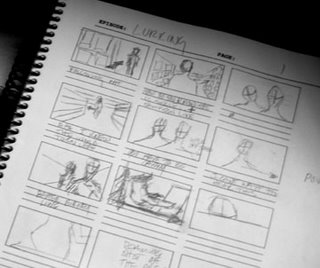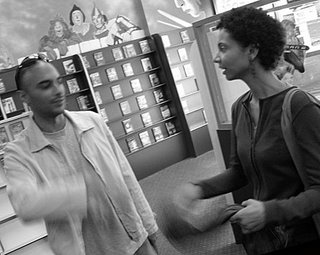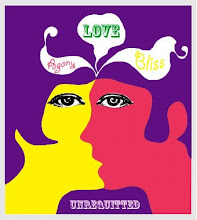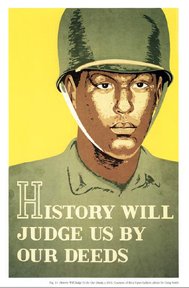
WE WON!
The IFP Cinema Lounge Bill Keyes MC announced, "And the jury awarded special recognition to I WILL COME BACK..." and a big image of Amahl Grant popped onto the screen and the clip, "My grandfather wore a suit everyday of his life. Cold, Heat... it didn't matter, it wasn't a matter of showing out for other people. It was a matter of dignity and Italy had a lot to do with that..."
That was pretty cool to see and hear Amahl talking on that big screen and the crowd applauding our bio-doc film about Buffalo Soldier Samuel H. Grant for the Minnesota Historical Societies' Greatest Generation Film Festival.
Special Jury Prize. I am always curious about why people are awarded Special Jury Prizes, for instance, at Cannes or Sundance. Of course, for us it means we didn't get a share of the big pot of money being put out for prizes. But we did get parting gifts!
Even better, I think, was our reception in the screening rooms. I ran between the two theaters and listened to audience reactions. The audiences cheered at the end of the film and not just in the screening room loaded with Grant family. In fact, the Grant family theater was more subdued than the larger main screening area at the Minnesota History Center. Many from the audience gave us and the Grants warm and appreciative feedback and said they were moved by the story and Samuel Grants courage. not only at war but on the homefront in starting the civil rights movement.
And then the post-mortem sets in, why a "Special Jury Prize" and not the big tamale? Withstanding I had no opportunity for a speech, probably the real reason we didn't get a main category prize. Let me first just express my gratitude for not winning a cash prize. Cash prizes always produce nothing but problems with vendors, with participants, with lawyers who prey upon filmmakers and with outsiders critical of the project who feel the filmmaker just "did it all for the cash." Everybody wants a piece of prize money. It's like winning the lottery and discovering instantly you have hundreds of long lost relatives. There is never enough prize money to recoup expenses.
Let's be honest, screenwriters and filmmakers are two classes of sufferers who will never be made whole by any amount of cash. We don't make films for cash reward. You'd be crazy to think that was our motivation. We do nothing but lose money on films because we believe in them. Besides, jury awards are like homecoming queen contests and cash prizes should never be counted upon.
One thing about the contest this year was how the winning films reflect upon our image of ourselves as Minnesotans. We have myths that must be upheld and this set of films fully embraced the Midwest Minnesotan image of subdued optimism and joy in the face of unbridled hardship.
Our special jury prize film, I WILL COME BACK has the same theme, an honest man who fought for his country even though it never wanted to give him full rights as a citizen and even tried to burn him at the stake but, other-than-than, there is very little variation from the sentimental ghee-whiz sympathy profiles and heroic virtues the Minnesota Historical Society sought to promote.
The suffering Scandinavian is an archetype juries pick because they feel public pressure to uphold Minnesota myths. Or maybe that's the only subject filmmakers felt they should pursue because the MNHS wanted them in the collection.
Over the years you will find an ongoing thread of story that continually gets retold about Minnesota people, that we cannot stop working as our Protestant work ethic will not allow it; we will suffer even Gods and natures vengeance valiantly and without too much complaint; and we never take ourselves too seriously even when we sometimes should. We love this story about ourselves. We want to hear it over and over, whether it be from Garrison Keillor or the Coen Brothers -- it is the archetypal Minnesotan story.
The great thing, I've discovered, is the suffering Scandinavian archetype is not the only story in Minnesota. And hopefully, with future Minnesota Historical Society projects we can get beyond simple stereotypes and explore the rich heritage of Minnesota from the Eastern European immigrants on the Iron Range to the German's of New Ulm, from the farmer to the shopkeeper to the Jewish deli owner to the Italians who lived on the flats along St. Paul's riverfront.
Our states culture is made of different perspectives and prisms through which it can be viewed and should be seen. There are stories of medical discovers, engineering marvels, heroic deeds and achievements, cartoonists, innovators, politicians, artistic achievements and hardworking migrant field workers. And, you'd probably find just as many stories about flappers, strippers and showgirls, nightclub entertainers, snake oil salesmen and gangsters, Holy rollers, boxers and poolsharks than in Brooklyn, New Orleans or Chicago.
This isn't to take any credit away from the winners. I loved Maxine Davis' THE GOOD DOCTOR that won for "best intergenerational film" and "56" by Deacon Warner about a Gopher football hero (also a Special Jury Prize winner) and THE SATISFIED LIFE and unflinching monologue by Ted Wryk by Freya Schirmacher took the top prize for "best film." MY GRANDMA LUCY was a heartfelt film narrated by Ali Drube about her grandmother who suffered from tuberculosis produced with her father Tom that won for "best collaboration" (between father and daughter).
MAKING THE BEST OF HARD TIMES by Roger Bindl won the prize for "best film about children growing up in the depression" who never "felt poor because nobody told them" and that intercut oral history interviews at a cafe in St. Paul. And A SACRED HEART by Norah Shapiro about the poetry of Phebe Hanson that arrived in her journals out of death and loss during an era with plenty of it. All were great stories and deserving winners. And we got to ride up to the premiere in a Rolls Royce limo and walk down the red carpet. It is so much better than cash, really!
Congratulations. Hopefully these film will inspire much more citizen scholarship and documentary making in years to come.
For a list of all 32 films go to:
http://www.mnhs.org
On the way home Patricia asked me why we didn't win the top film prize and money. I told her juries all have their dynamic and perhaps they couldn't fit us neatly into one of the categories. And her response was, "Well, I guess we can take confort that we are true artists, since we won a prize but still remain poor and misunderstood."
We both laughed outloud at her comment.
